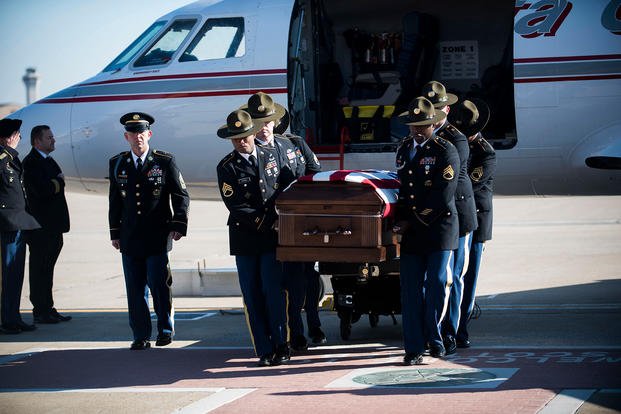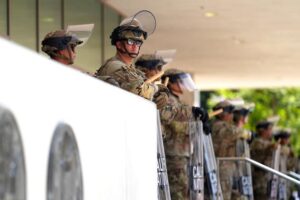Supreme Court to Hear Case of Army Soldier Against Defense Contractor Over Bagram Bombing
In a pivotal legal battle, the U.S. Supreme Court is set to deliberate on a case involving an Army soldier’s negligence claim against a defense contractor following a deadly bombing at Bagram Air Base, Afghanistan. The incident, which occurred during a Veterans Day 5K event in 2016, left five people dead and many others injured.
Former Army Specialist Winston Hencely, who sustained severe injuries in the attack, initiated a lawsuit in 2019 targeting Fluor Corporation. This contractor had employed Ahmad Nayeb, the Afghan national responsible for the bombing that shattered a gathering of over 200 individuals on November 12, 2016.
The lawsuit contends that Fluor Corporation was obligated to supervise its Afghan workforce continuously and failed to do so. It is also alleged that the company inadvertently supplied the materials used to construct the bomb.
Investigations by U.S. Forces-Afghanistan revealed that Nayeb crafted the explosive device within his workspace, utilizing tools and materials from his role in vehicle maintenance and oil disposal. On the day of the attack, Nayeb bypassed the escort bus meant for Afghan nationals, wandered across the base, and approached the race staging area. Hencely, upon noticing Nayeb’s suspicious behavior, attempted to intervene but was too late to prevent the detonation.
The explosion claimed the lives of three soldiers and two Fluor employees, while injuring 17 others. Hencely suffered a traumatic brain injury, leading to ongoing seizures and the loss of his left side’s functionality.
The investigation credited Hencely’s actions with mitigating the attack’s potential severity. Despite acknowledging Nayeb’s past affiliation with the Taliban, the military had assumed he had forsaken such allegiances.
The inquiry also criticized Fluor for failing to uphold its contractual obligations, particularly noting the provision of unnecessary tools to Nayeb and inadequate employee monitoring during escort duties.
While Hencely did not include the U.S. Army in his lawsuit, courts have stated their inability to adjudicate the matter based on state claims violations due to the Federal Tort Claims Act. This federal statute grants immunity to the federal government and its contractors from lawsuits related to combat operations.
Fluor’s defense attorneys have argued that federal tort law supersedes state tort law for military contractors, referencing the broader legal consensus. “The Second, Third, Fourth, Ninth, and D.C. Circuits unanimously concur that state law should be displaced insofar as it conflicts with the federal objectives underlying the [Federal Tort Claims Act’s] combatant-activity exception,” they wrote in response to Hencely’s Supreme Court petition.
Hencely’s legal team contends that contractors should not benefit from the same immunity as the government in wartime, holding that Fluor should face accountability akin to any other entity in negligence cases.
Families of the victims and several injured parties have launched a separate lawsuit against Fluor, currently on hold pending the Supreme Court’s decision in Hencely’s case.
Defense contractors have frequently faced negligence lawsuits over their support roles in military operations in Iraq, Afghanistan, and beyond. These cases have addressed issues from burn pit management to chemical exposure and construction failures leading to injuries or deaths. However, legal outcomes often favor the contractors due to jurisdictional rulings or the application of combat immunity.
The attack’s casualties included Army soldiers Pfc. Tyler Iubelt, 20; Staff Sgt. John Perry, 30; and Sgt. 1st Class Allan Brown, 46, alongside Fluor contractors Peter Provost, 62, and retired Army Col. Jarrold Reeves, 57.
The Supreme Court’s review of this case marks a significant moment in the ongoing dialogue about contractor liability and military operations. Oral arguments are scheduled for the fall.










